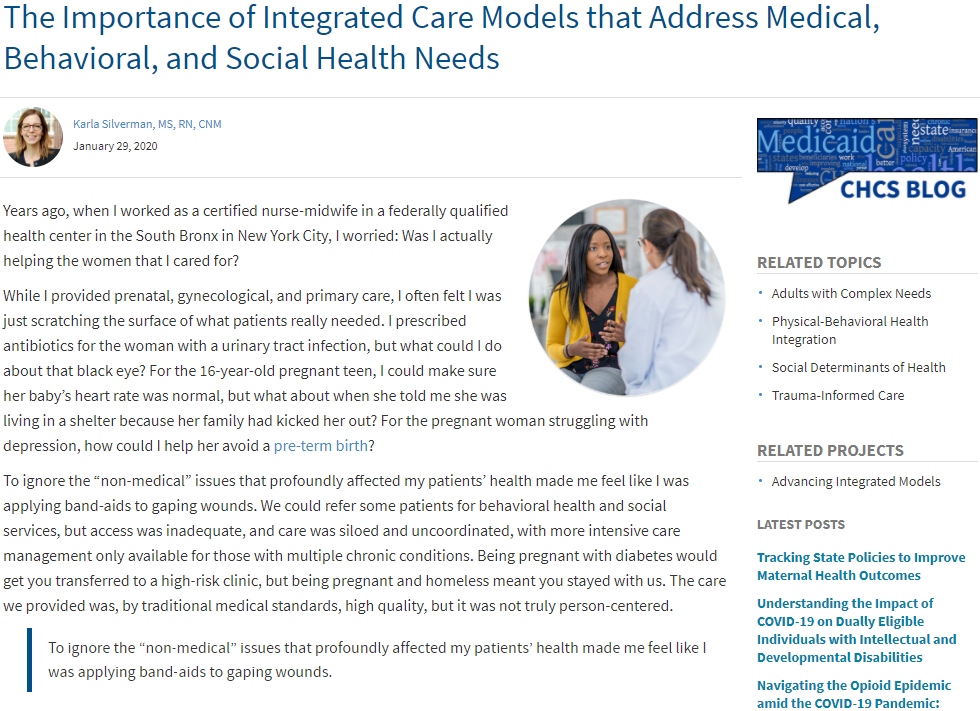
The Importance of Integrated Care Models That Address Medical, Behavioral, and Social Health Needs
This blog highlights Advancing Integrated Models, a new Center for Health Care Strategies initiative providing the opportunity to align the delivery of critical components of high-quality care for individuals with complex medical and social needs, including: complex care management; trauma-informed care; physical and behavioral health integration; and mechanisms to address health-related social needs.
Innovative plans for supporting integration are emerging across the eight pilot sites who are employing a wide range of creative, “from the ground up” solutions. Those strategies include:
- Redefining risk algorithms
- Expanding the application of trauma-informed care
- Committing to human-centered design
- Pursuing innovative payment model

 Back to Resources
Back to Resources